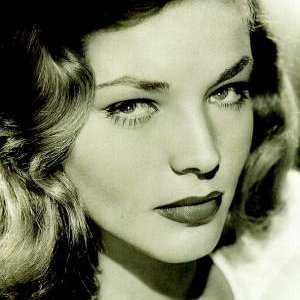Last night I watched the
1947 musical Good News. It made my playlist because
June Allyson starred and she fascinates me; I first saw her in 1955's
Strategic Air Command (a weirdly propagandistic flick about the importance of America's having a strategic bombing force), and her hoarse voice struck me as discordant to the 1950s feminine ideal that her character represented, such that I thought it curious that she had been cast. (I have a similiarly inexplicable fascination with
Gloria Grahame because of her upper lip. Seriously.)
So, anyway, I watched the '47 version of Good News. I have a friend who loathes musicals because the songs and dances add so little to the story. I don't entirely share that opinion but in this case I agree with him. Really, the story here was no more than a means to connect the songs and dances into an intelligible narrative. At that, at least, they succeeded. (This is not to say the narrative is plausible, merely that it can be understood.) After watching it the only things I really liked were June Allyson, her party dresses, her enviable ruffle-tipped peep-toe sandals in the final number, and a fine-looking Mel Tormé in a bit part.
The DVD's special features included two musical numbers from the
1930 movie. One of the excerpts begins with the end of a narrative scene and I noticed, as I often have with movies from the twenties and earlier, that the acting seemed very much like stage performances captured on film (or tape, these days). I am only a
dilettante in movie history as in so much else, so I don't know whether this next impression is accurate; but while I have encountered a few perfunctory nods to the theatrical antecedents of film performances, it doesn't seem to have much attention paid to it. Rather, the things that seem to attract attention are the early novelties and the developments that have influenced subsequent filmmaking. If this is really so in film history, I wonder if it's just that the stage influences on early movies dissipated as moviemaking came into its own, or that the older movies best remembered today were among the earliest departures from the stage tradition, or that the stage tradition was simply so pervasive early on as not to be thought worth of notice (which also fits in with the earliest-departures notion). For example, I don't remember even
Birth of a Nation for those of its stage-like qualities, although I do recall their being present.
At any rate, the musical excerpts from the thirties version of Good News seemed Vaudevillian, at least compared to what I know of Vaudeville. It's interesting to me to think how much more varied Vaudeville seems to have been, than the general perception (which still serves as my default perception of Vaudeville) admits. One of the musical excerpts, of the title song performance, has a guy doing an exhibition dance of truly impressive moves. When, at a Toulouse-Lautrec exhibition, I first heard of Valentin le Désossé, I had a hard time imagining movements suggestive of bonelessness. Prior to that I'd seen Tommy Tunes on an evening talk-show, where he spoke glowingly of Vaudevillian dancers' now-lost abilities and demonstrated the only move he'd been able to work out, which was cool, in the way that Jackson's moon-walk was cool. But it didn't seem especially impressive, and certainly not the cartoon bonelessness of Popeye or Olive Oyl when in the clutches of Bluto (or Brutus. I never have understood that). But, man, that guy in the title song solo dance? Now I understand Valentin the Boneless. That. Was. Awesome.
What also interested me about the thirties-version excerpts was the gracelessness of much of the dancing. It wasn't at all like Ginger Rogers and Fred Astaire. It seemed to be either freakishly flexible, as above, or coarsely bony (and borderline naughty in consequence). The latter gracelessness is also an unexpected contrast with midcentury notions of femininity, and makes me wonder how different the implicit cultural theory of gender (in the abstract) was from that of today. Granted, it was the Roaring Twenties, girls wore scandalously short dresses, and publicly drank & smoked like fishes & chimneys. But there's the perception of that as a foray into rebellious freedom in the age of Prohibition,
versus as a range of structural variation within the concept of femininity that isn't part of the, or at least my, default perception of early 20th century tolerable women's behavior. And this is not even considering the possible class dimension, which now that I have, was probably of considerable significance (so that, just as extinction means that evolution results in greater variation around ever more limited body plans,
per Gould's
Wonderful Life, so cultural history may exhibit subsequent moral [in the sense of
mores] expansions of a limited subset of preceding moral ranges).
One thing that both movies did unusually well was to impress me with the real-life sizes of the men, women, and settings. I didn't at all have that larger-than-life feeling about the images on screen, and not simply because I was watching them on a smallish (for today) picture-tube television. But really, the 1930s version of Good News appears, on the basis of two musical excerpts, to be both more enjoyable and more interesting than the 1947 version.
Labels: movies

